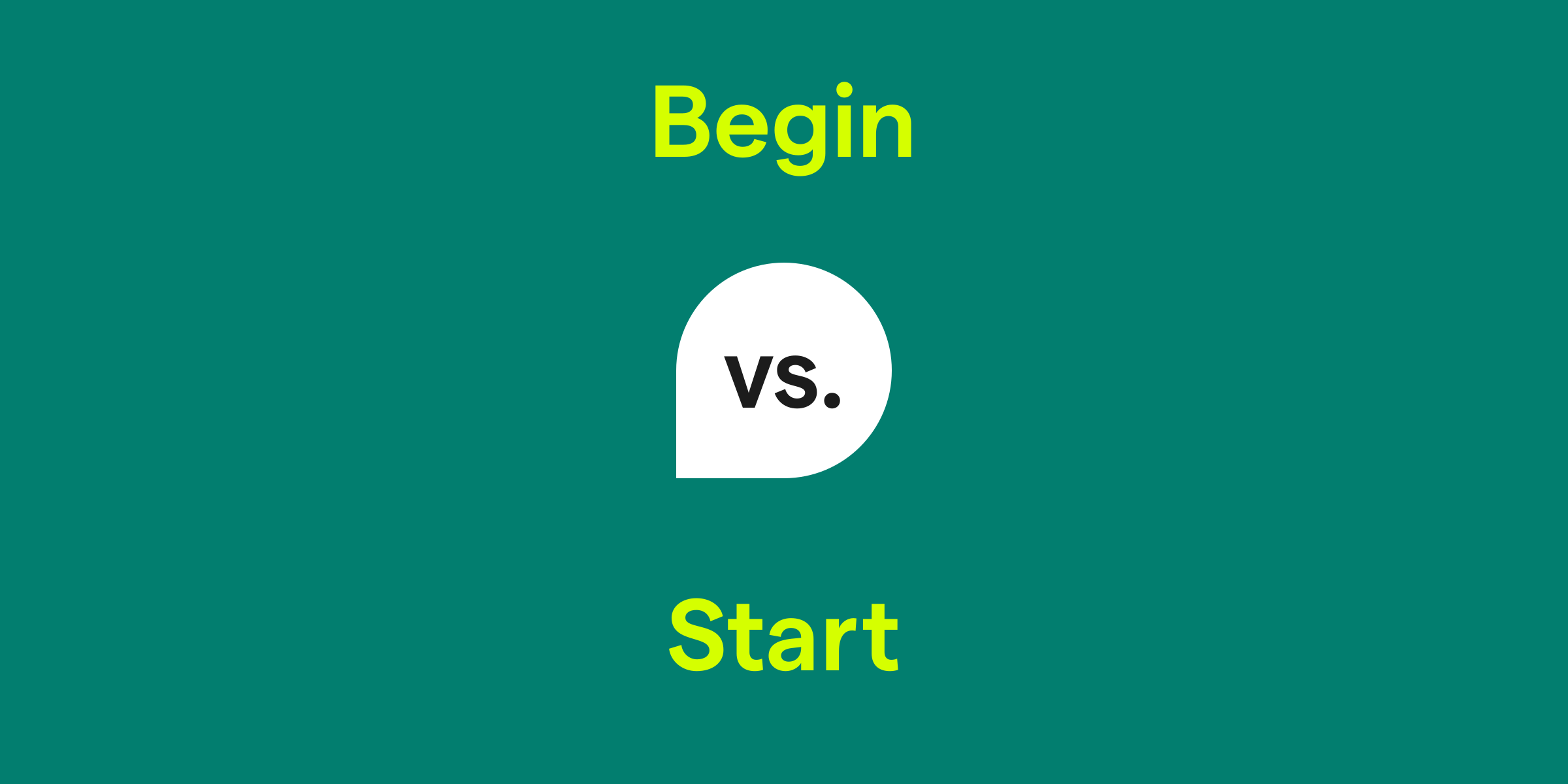Begin vs. Start: What's the Difference?
While begin and start are often interchangeable, they can carry subtle differences in their connotations. Begin is typically used when indicating the initial point of a continuous action or the commencement of a more formal or serious event. 'Start,' on the other hand, may imply the initiation of an action or activity, and is often used in the context of initiating operations of machines or vehicles.

How do you use the word begin in a sentence?
The word begin is most appropriately used when referring to the onset of an activity or process in a more abstract, inceptive, or formal context. It is often associated with the early stages of non-physical processes such as events, eras, or experiences.
Examples of begin in a sentence
- The ceremony will begin at noon.
- She began her career as a dancer at the age of five.
- The novel begins with a quote from Shakespeare.
How do you use the word start in a sentence?
The term start is commonly used to describe the commencement of a more specific or tangible activity. It is suitable for situations involving physical actions, including beginning machinery or a task, and is also the preferred term in informal settings.
Examples of start in a sentence
- The engine starts with the push of a button.
- Let's start the quiz to test your knowledge.
- The meeting should start in about ten minutes.
Begin and start definition, parts of speech, and pronunciation
Begin definition:
Begin (verb): To start, to commence, or to initiate something; to perform or undergo the first part of an action or activity.
Begin parts of speech:
Begin pronunciation:
Begin (bih-GIN).
Start definition:
Start (verb): To begin an activity or movement; to cause something to begin; to come into being.
Start parts of speech:
Start pronunciation:
Start (stahrt).
Begin (verb): To start, to commence, or to initiate something; to perform or undergo the first part of an action or activity.
Begin parts of speech:
- As an intransitive verb: 'The movie begins at 9 pm.'
- As a transitive verb: 'Begin your assignment as soon as possible.'
Begin pronunciation:
Begin (bih-GIN).
Start definition:
Start (verb): To begin an activity or movement; to cause something to begin; to come into being.
Start parts of speech:
- As a verb: 'The car won't start due to the cold weather.'
- As a noun (less common usage): 'She had a good start in the race.'
Start pronunciation:
Start (stahrt).
Begin vs. start in a nutshell
To sum up, begin and start are usually interchangeable, yet begin is generally preferred in more formal or abstract contexts while start is more common in informal situations and with physical activities. Begin tends to imply the initial stage of a process, particularly in non-physical or conceptual matters. In contrast, start often refers to the action of initiating something concrete or functional, such as a device or event. Knowing when to use each word can add a subtle layer of precision to your communication.
Get AI Writing Assistance Wherever You Type
Make sure your vocabulary is on point and every punctuation mark is in the right place, no matter where you’re working. Grammarly works across more than 500,000 websites and apps so you can improve your writing without copying, pasting, or breaking focused.

More Commonly Confused Words
Interest piqued? Pore (not pour) over other commonly confused words to help your writing reach peak (not peek) performance.